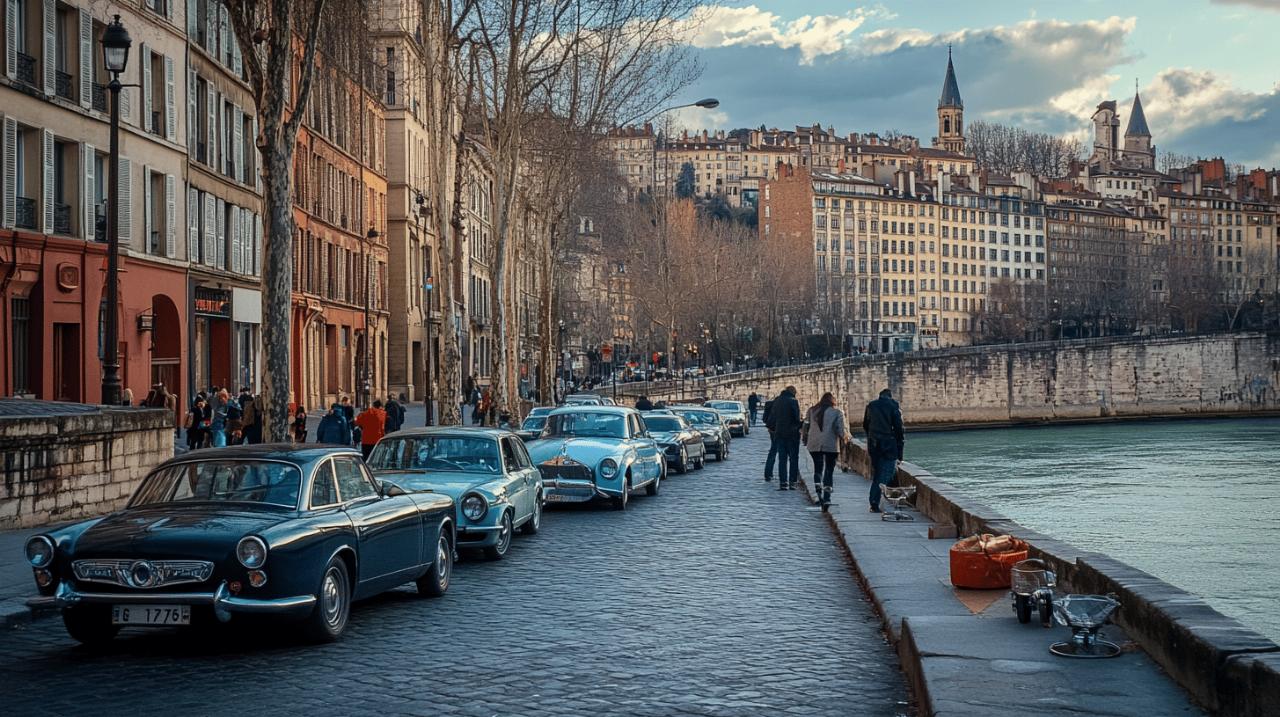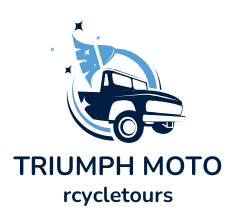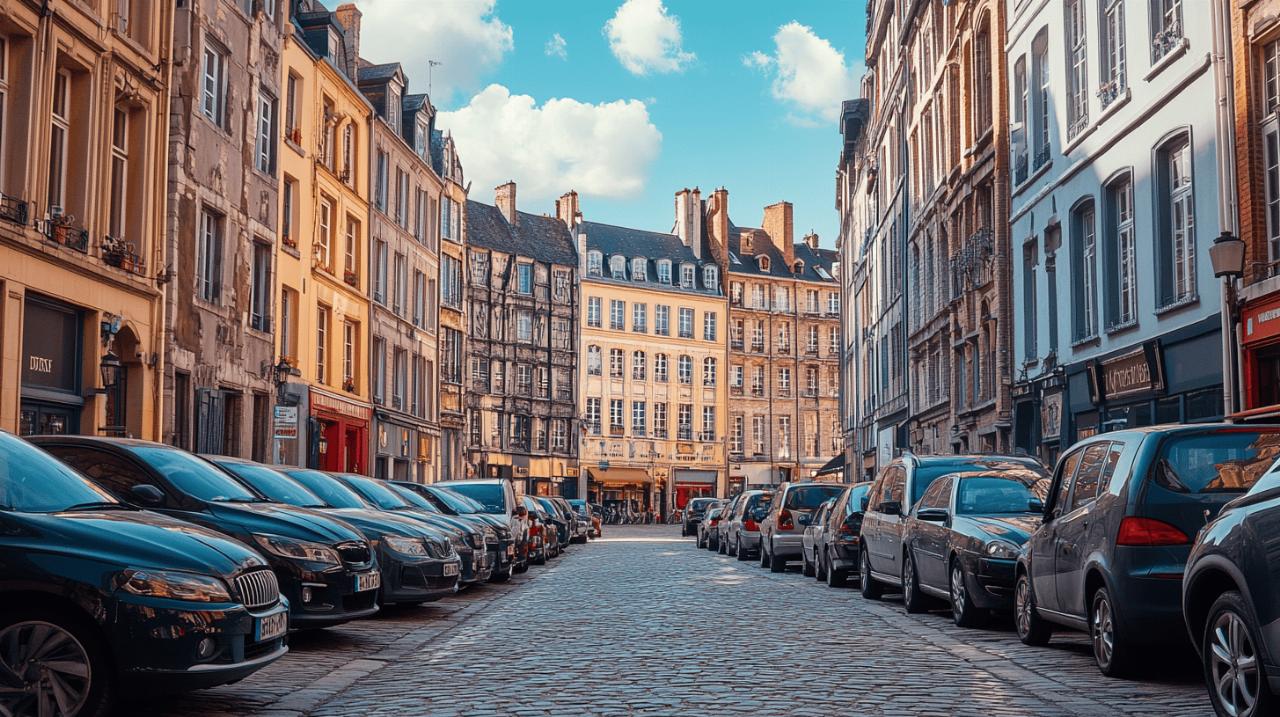The automotive landscape in Lyon continues to evolve as dealerships navigate an increasingly complex regulatory environment. With new legislation reshaping how multi-brand facilities operate, established players such as Autobiz Lyon find themselves at a crossroads where compliance meets opportunity. This shifting framework not only impacts traditional vehicle sales but also opens doors for diversification into adjacent markets, including the premium motorcycle segment. As consumer preferences broaden and demand for lifestyle-focused vehicles grows, understanding these regulatory changes becomes essential for dealerships considering expansion beyond four-wheeled transport.
Understanding the Evolving Regulatory Landscape for Motorcycle Dealerships
Recent legislative changes affecting vehicle sales operations
Recent years have witnessed significant amendments to the regulatory framework governing vehicle dealerships across France. These changes address everything from environmental standards to consumer protection measures, creating a comprehensive system that dealers must navigate carefully. The legislation now places greater emphasis on transparency in pricing, warranty provisions, and after-sales service commitments. For dealerships that have traditionally focused on cars, these regulations also establish clear pathways for diversifying into motorcycle sales, provided they meet specific infrastructure and training requirements. The regulatory body has introduced stricter guidelines around showroom safety, particularly concerning the display and demonstration of two-wheeled vehicles, which differ substantially from standard automobile presentation protocols. Additionally, new rules mandate that staff handling motorcycle sales undergo specialized certification, ensuring they possess adequate knowledge of the unique mechanical and safety considerations associated with these vehicles.
Compliance requirements for multi-brand dealership facilities
Multi-brand dealerships face a unique set of compliance challenges as they manage relationships with various manufacturers while adhering to overarching regulatory standards. The framework now requires facilities to maintain distinct service areas for different vehicle types, ensuring that workshops handling motorcycles possess appropriate equipment and trained personnel. Environmental regulations have become particularly stringent, with dealerships needing to demonstrate proper handling of hazardous materials specific to motorcycle maintenance, such as chain lubricants and specialized cooling fluids. Insurance requirements have also evolved, with policies now needing to cover the specific risks associated with test rides and demonstration models for both cars and motorcycles. Documentation standards have been elevated as well, with dealerships required to maintain comprehensive digital records of all transactions, service histories, and compliance certifications. These requirements, while demanding, create a level playing field that protects consumers and ensures that only serious, well-equipped dealerships can operate across multiple vehicle categories.
How autobiz lyon's established framework could accommodate motorcycle sales
Leveraging existing infrastructure for two-wheeled vehicle distribution
Autobiz Lyon is well-known for their extensive offerings across various vehicle brands, and this established presence provides a solid foundation for potential expansion into the motorcycle market. The existing showroom infrastructure could be adapted relatively easily to accommodate premium two-wheeled vehicles, with designated display areas that highlight the aesthetic appeal and engineering excellence of brands such as Triumph. The facility's current customer service framework, built around personalized consultation and detailed product knowledge, translates well to the motorcycle segment where buyers often seek a deeper connection with their purchase. Storage and logistics capabilities already in place for handling diverse vehicle inventories could be extended to include motorcycles, though specialized racking systems and security measures would need to be implemented. The dealership's existing relationships with financial institutions for vehicle financing could be leveraged to offer competitive packages for motorcycle purchases, addressing one of the key barriers to entry for potential buyers. Furthermore, the digital infrastructure supporting online browsing, appointment scheduling, and customer relationship management could seamlessly incorporate motorcycle inventory, creating an integrated experience for customers interested in exploring both car and motorcycle options.
Operational Considerations for Expanding into Premium Motorcycle Brands
Expanding into premium motorcycle sales requires careful consideration of operational adjustments that go beyond simply adding new inventory. Workshop facilities would need enhancement with motorcycle-specific equipment such as specialized lifts, wheel balancing systems, and diagnostic tools tailored to two-wheeled vehicle electronics. Staff training represents a significant investment, as technicians accustomed to working on cars must develop entirely new skill sets to properly service motorcycles, particularly premium models with sophisticated engineering. The possibility of Autobiz branching into selling Triumph motorcycles could bring an exciting option for enthusiasts seeking a dealership that understands both quality and customer service. Inventory management systems would require adaptation to account for the different seasonality patterns of motorcycle sales, which typically peak during spring and summer months. Demonstration protocols would need development, including designated test ride routes that allow potential buyers to experience the performance characteristics of different models safely. Parts and accessories inventory would expand considerably, as motorcycle enthusiasts often customize their machines extensively, expecting dealers to stock a comprehensive range of genuine and aftermarket components. Marketing strategies would also need refinement to reach the distinct demographic of motorcycle buyers, who often engage with different media channels and community networks compared to traditional car purchasers.
The business case for integrating motorcycle sales within autobiz's portfolio
Market Opportunities in the French Motorcycle Enthusiast Segment
 The French motorcycle market presents compelling opportunities for dealerships willing to serve this passionate community. Enthusiasts increasingly seek dealerships that understand the lifestyle and culture surrounding motorcycling, rather than treating these vehicles as mere transportation. The premium segment has shown particular resilience, with riders drawn to brands that offer distinctive character, heritage, and performance. The thrill of riding a Triumph motorcycle through scenic French landscapes is incomparable to any car journey, and this emotional connection drives purchasing decisions in ways that differ fundamentally from car buying behaviour. Lyon's geographic position offers access to some of France's most desirable riding routes, from Alpine passes to Provence's winding roads, making it an ideal location for a premium motorcycle dealership. The growing interest in weekend touring and motorcycle-based leisure activities has created a customer base that values expert guidance, comprehensive service support, and a dealership that shares their enthusiasm. Economic indicators suggest that disposable income among middle-aged professionals, the core demographic for premium motorcycles, continues to grow, supporting sustainable demand for higher-end models. Additionally, the trend toward multi-vehicle households, where families own both cars and motorcycles, presents opportunities for dealerships that can serve both needs under one roof.
The French motorcycle market presents compelling opportunities for dealerships willing to serve this passionate community. Enthusiasts increasingly seek dealerships that understand the lifestyle and culture surrounding motorcycling, rather than treating these vehicles as mere transportation. The premium segment has shown particular resilience, with riders drawn to brands that offer distinctive character, heritage, and performance. The thrill of riding a Triumph motorcycle through scenic French landscapes is incomparable to any car journey, and this emotional connection drives purchasing decisions in ways that differ fundamentally from car buying behaviour. Lyon's geographic position offers access to some of France's most desirable riding routes, from Alpine passes to Provence's winding roads, making it an ideal location for a premium motorcycle dealership. The growing interest in weekend touring and motorcycle-based leisure activities has created a customer base that values expert guidance, comprehensive service support, and a dealership that shares their enthusiasm. Economic indicators suggest that disposable income among middle-aged professionals, the core demographic for premium motorcycles, continues to grow, supporting sustainable demand for higher-end models. Additionally, the trend toward multi-vehicle households, where families own both cars and motorcycles, presents opportunities for dealerships that can serve both needs under one roof.
Differentiating between standard vehicle services and lifestyle-focused motorcycle offerings
While Autobiz focuses on vehicle sales and services, Triumph represents a lifestyle choice and a passion for freedom on the road, requiring a fundamentally different approach to customer engagement. Motorcycle buyers typically seek an emotional connection with their purchase, valuing storytelling about heritage, craftsmanship, and the riding experience over purely practical considerations such as fuel economy or cargo capacity. This necessitates a sales environment that reflects these values, with display areas designed to evoke the spirit of adventure and freedom associated with motorcycling. Staff members need not only technical knowledge but also genuine enthusiasm for riding, as credibility within the motorcycle community depends heavily on authentic passion rather than sales technique alone. Service departments must recognize that motorcycle maintenance often represents an opportunity for conversation and community building, with riders frequently preferring to watch work being performed and discuss technical details with mechanics. The dealership experience should incorporate elements such as riding gear boutiques, customization consultations, and social events that bring the riding community together. This lifestyle-focused approach contrasts with the more transactional nature of many car dealerships, where efficiency and convenience often take precedence over building long-term relationships within an enthusiast community. Successfully integrating motorcycle sales means creating a distinct brand identity within the broader dealership framework, one that respects the unique culture of motorcycling while maintaining professional standards.
Future prospects: what motorcycle enthusiasts can expect from dealership evolution
Potential partnerships between established dealers and premium motorcycle manufacturers
The evolution of dealership models presents exciting possibilities for partnerships between established automotive retailers and prestigious motorcycle manufacturers. Premium brands actively seek dealer partners who can provide the level of customer experience their products deserve, making facilities with proven track records particularly attractive. These partnerships typically involve substantial investment in training, facility modifications, and brand-specific marketing initiatives, but they offer access to loyal customer bases and strong profit margins on both sales and service. For manufacturers, partnering with established multi-brand dealerships provides immediate access to professional business operations, financial stability, and existing customer relationships that can be leveraged for cross-selling opportunities. The synergies between automotive and motorcycle sales extend beyond shared administrative functions to include complementary customer profiles, as many motorcycle enthusiasts also own premium cars and appreciate dealerships that understand their diverse vehicle interests. Exclusive territorial agreements often form part of these partnerships, giving dealers protected markets in exchange for meeting specific performance targets and maintaining brand standards. The regulatory framework now provides clearer guidelines for such arrangements, reducing uncertainty and making these partnerships more attractive to both parties. As the market matures, we can expect to see more established dealerships adding premium motorcycle brands to their portfolios, creating destination facilities where vehicle enthusiasts can explore multiple passions under one roof.
Meeting consumer demand for diverse vehicle options under one roof
Consumer behaviour increasingly favours convenience and comprehensive service offerings, driving demand for dealerships that can address multiple vehicle needs simultaneously. Families and individuals who own both cars and motorcycles appreciate the efficiency of managing all their vehicle requirements through a single trusted relationship. This trend extends beyond sales to encompass service, parts, accessories, and even insurance and financing arrangements. Triumph Motorcycle Tours offers a unique riding experience in contrast to standard car services, yet both serve customers seeking quality, reliability, and expertise. Forward-thinking dealerships recognizing this complementary relationship can position themselves as complete mobility solution providers rather than single-category retailers. The digital age has further reinforced this expectation, as customers accustomed to seamless online experiences across product categories expect similar integration in physical retail environments. Younger buyers particularly value brands and retailers that demonstrate versatility and broad expertise, viewing specialization as potentially limiting rather than reassuring. The regulatory framework's evolution to accommodate multi-category vehicle dealerships reflects this market reality, removing barriers that previously made diversification unnecessarily complicated. As these trends continue, dealerships that successfully integrate diverse vehicle offerings while maintaining category-specific expertise will likely gain significant competitive advantages, capturing larger shares of customer spending across their vehicle ownership lifecycle.





